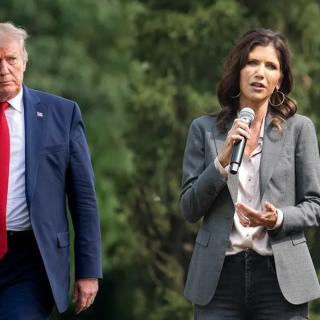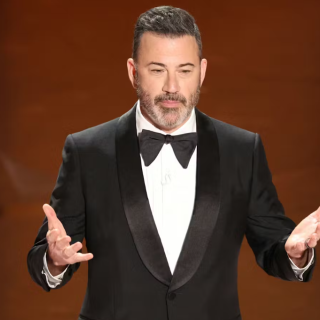This year’s Columbus City Council race is a battle between grassroots progressives and well-heeled incumbents. Challenging the status-quo, Jesse Vogel is a Democrat running for Columbus City Council - District 7 against establishment darling Tiara Ross. Vogel knows he can’t do it alone. So he’s building a coalition of progressive allies. One of them is Kate Curry-D’Souza, the third candidate from the May primary who recently endorsed Vogel. Vogel respects her a lot as “a principled, progressive leader who I’m honored to have on our team,” Between the two of them, Jesse and Kate received 60 percent of the votes in the primary, indicating a desire for a different kind of leadership. By partnering now, they’re able to show how people on the left are engaged and working together to win.
It’s not enough that 1,258 individuals donated to City Council candidate Jesse Vogel in a recent reporting period. It’s not enough that he recently outraised his opponent, by $154,000. Nor is it enough that he has 13 times more cash on hand than she does. Nope. Not enough when a campaign finance loophole would let Ross’s establishment councilmember allies, including City Attorney Zach Klein, to dump a half a million dollars into her campaign tomorrow if they wanted to. And trust me, they’d each still have enough left over to laugh all the way to the ballot box on their own.
Here’s how it works: an individual – whether a CEO or a fat cat developer, or a you or a me – runs into a cap of $16,615 when donating to a given race (“Which is, itself, a problem,” Vogel explained to me at a sit-down meeting in Schiller Park). But campaign-to-campaign transfers? Unlimited. No cap. No ceiling. Just a side-street shell game which could (and does) spell trouble for a grassroots candidate like Vogel. Three Columbus councilmembers already ponied up $60,000 (combined) for Ross’s campaign before the primaries, and City Attorney Klein has slipped her a neat $7,000 (hardly a drop in the bucket of the $934,000 (not a typo) saved in his own campaign’s account). Knowing his opponent has access to an ATM like that, what can a candidate like Jesse Vogel do? Something very few politicians do these days at all: listen.
Before we look at his campaign approach, there's a question worth asking directly about the support Vogel receives. Earlier this year, Joe Motil contributed an article to Columbus Free Press which identified two campaign contributions, each one for $250, coming from donors with ties to Ohio’s House Bill 6 bribery scandal. One of the donors, Laurel Dawson, is former chief of staff for Ohio Governor Mike DeWine. She rented to Jesse’s parents the house they lived in when he was born, and so is a longtime family friend. The other donor, Dan McCarthy, is a former lobbyist for First Energy. Having been introduced to Vogel at an event for Oberlin College alumni, where both men graduated, Mr. McCarthy made the donation to Vogel online sometime after. Upon learning more about Mr. McCarthy’s connection to HB6, Jesse returned the money. That action demonstrates an integrity not always shown in politics – it shows Vogel is doing things differently.
This shows up in his approach to field campaigning, too. “We're taking a different approach to canvassing than many people are used to,” he said. Unlike typical campaigns – the kind that send walking clipboards with scripts out into neighborhoods – Jesse’s volunteers receive actual training. They learn what Vogel’s campaign is offering to do better for people, and about the issues Vogel prioritizes, of course. “But then,” he tells them, “pause and say to voters, ‘What's the number one issue for you?’ And listen.”
He calls it an “organizing moment” – a deep canvassing that, for him, is about more than just winning. More than his campaign. He sees this moment as part of the “long term work of rebuilding people's trust in the idea that government can get anything done for them and isn't just a bunch of corrupt folks in the White House that they see, or in the city where they're not quite sure who's pulling the strings, and why the choices are being made that are being made.”
It’s a tall order, trying to restore anyone’s trust in a government that’s let them down. To get them to trust a city council, for instance, which protects a dangerous kind of policy status quo.
Vogel described an area in District 7, the area on Harmon Avenue between Greenlawn Cemetery and the highway, where the average life expectancy is around 60 years old. Families there aren’t able to get basic needs met, like going to the doctor or the grocery store, because they can’t afford a car. He cites a lack of adequate public transportation as one contributing factor. “It points to policy failure in a city that has so many resources.”
Vogel sees an opportunity to start more deliberately talking about those resources and how they get used. “When it comes to spending, we've got, as a city, to spend within our means. And also invest in the things that really matter.” For Jesse that looks like not buying two new police helicopters while at the same time cutting funding to programs like the Hilltop Tiger soccer team. It looks like questioning why institutional investors have been able to buy up 35 percent of the single family homes in Linden. It looks like taking more seriously the oversight role City Council has in terms of looking at what the mayor’s office is spending.
“[It] brings me back to a core theme of the campaign which is about accountability and saying we need someone on council who has a different relationship with existing powers in the city and with the mayor and maybe with donors, to be able to look at the mayor and those offices and say, ‘Actually, some of this is not helping our people.’” [It’s worth noting at this point that the matter of how much better the city could’ve utilized all the public funds being spent by Columbus Mayor Andy Ginther, who has endorsed Vogel’s opponent, on his continued trips abroad, did not come up.
Winning this race is, of course, important to Jesse. But ultimately, his campaign is about so much more than just winning. “It’s not about ego. It’s not about ourselves. It’s about what we’re going to be able to accomplish together.”
Early voting in Columbus runs from October 7 – November 2. Election Day is November 4.



